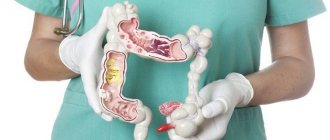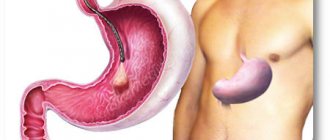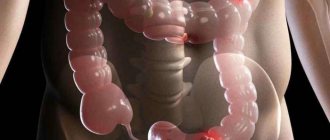Bitterness in the mouth - what does it mean?
Bitterness in the mouth can occur spontaneously, or it can be constantly present for some time. Thus, in case of intoxication of the body or endocrine pathologies, the bitterness in the mouth does not go away long enough, and the bitter taste, which appears due to disruption of the digestive processes, appears immediately after eating and disappears after some time.
What does bitterness in the mouth mean?
| Bitterness in the mouth in the morning | Liver and gallbladder problems |
| Bitterness in the mouth after dental procedures or in combination with discomfort in the gum area | Allergy to the material used, inflammatory diseases of the oral cavity |
| Bitterness in the mouth during physical activity | If it is accompanied by heaviness in the right side, it may indicate liver disease |
| After any meal | Diseases of the stomach, duodenum, gall bladder, and only some liver pathologies |
| After eating too heavy, fatty foods or after overeating | Gallbladder, bile ducts, liver |
| Bitterness in the mouth combined with heartburn | Gastroesophageal reflux disease |
| Constant bitterness in the mouth | Possibly oncological disease of the gastrointestinal tract, cholelithiasis, cholecystitis, endocrine or mental diseases |
| Short-term bitterness in the mouth | During a stressful situation or the use of medications that affect the liver and gastrointestinal tract |
Treatment
When bitterness appears in the mouth after eating, the causes and treatment will differ from those during pregnancy and other conditions.
Article for you:
How to remove bumps after injections on the buttocks
Therefore, there are no uniform recommendations on this matter, and treatment tactics are conventionally divided into three components:
- General recommendations regarding routine, nutrition and lifestyle;
- Drug therapy is designed to improve the functioning of the gastrointestinal tract;
- Traditional medicine recipes that can serve as an aid to basic drug therapy, or can be an independent method of getting rid of this unpleasant symptom.
Causes of bitterness in the mouth
- Dysfunction of the liver, gall bladder and its ducts. Bitterness in the mouth can signal liver pathologies in which it is difficult for it to perform its functions. Liver cells produce bile, from where it enters the gallbladder and is transported to the intestines as needed. Violations at any of these stages can lead to stagnation of bile and its release into the esophagus, which causes a bitter taste in the mouth. Usually, pathology is indicated not only by bitterness, but also by a number of other symptoms - a yellowish tint to the skin, the formation of a dense yellow coating on the tongue, dark or colored urine, a metallic taste in the mouth.
- Gastrointestinal diseases. There are a number of diseases of the digestive tract, which are characterized by the appearance of bitterness in the mouth. These include gastroesophageal reflux disease, gastric dyspepsia, colitis, enteritis, gastritis and ulcers. A bitter taste in the mouth appears along with a feeling of heaviness in the stomach and heartburn after eating in case of dyspeptic disorders; in addition, symptoms such as nausea, diarrhea, and flatulence may be added.
There are 2 main violations here:
- With gastroesophageal reflux disease, the stomach loses its ability to cleanse itself; through the lower esophageal valve, the contents of the stomach or intestines can enter the esophagus, causing an unpleasant taste of acid or bitterness in the mouth. Other symptoms of the disease: nausea, bloating, heartburn and chest pain, as well as cough and shortness of breath, which occur when lying down. To alleviate the patient’s condition, it is recommended to adjust the diet, remove chocolate, citrus fruits, smoked meats and fatty foods from the diet, eat small portions, give up alcohol and immediately after eating do not take a horizontal position, during which the symptoms of heartburn worsen.
- Gastric dyspepsia is a digestive disorder caused by hypersecretion of hydrochloric acid in the stomach, impaired motility or other reasons. Most often it manifests itself as a feeling of heaviness and fullness in the stomach even after a small amount of food, nausea, bloating and a feeling of bitterness in the mouth in the morning. It can worsen during stressful conditions of the body, as well as after taking certain medications. Fibrogastroscopic examination (FGS) allows you to detect pathologies of the digestive tract and correctly draw up a treatment regimen, if successfully carried out, all unpleasant symptoms disappear.
- Parasitic infestations of the body. Parasites that live in the intestines destroy its mucous membrane and cause many pathologies of the digestive tract. Thus, Giardia - the simplest flagellated parasites that live in the small intestine - attaching to its walls, injure the mucous membrane, causing irritation and disruption of digestive processes. They destroy the glycocalyx and block the absorption of nutrients by the intestinal villi, which disrupts the metabolism of fats and carbohydrates, and symptoms of vitamin deficiency may appear even with a balanced and vitamin-rich diet. Giardia metabolic products cause allergic reactions and can provoke increased sensitivity of the body to substances that were not previously recognized as allergens. If bitterness in the mouth is caused by parasites, then cleansing the body is the best way to treat it. Traditional medicine suggests using tansy and wormwood to remove parasites.
- Oral diseases. If bitterness in the mouth appears after dental procedures or is accompanied by toothache, then most likely it is caused by diseases of the teeth, periodontal tissues and gums. A bitter taste can be caused by a poor-quality filling or crown, an allergic reaction to materials for dental prosthetics, as well as a disorder of receptors due to impaired innervation of the tongue or the proliferation of pathogenic microflora of the oral cavity. Mechanical damage to the oral mucosa, periodontitis, gingivitis, stomatitis and periodontal disease may be accompanied by a bitter taste in the mouth; for its treatment, you should consult a dentist in a timely manner.
- Hormonal disorders. Functional disorders of the thyroid gland lead to increased or decreased secretion of thyroid hormones, causing a state of hyperthyroidism or hypothyroidism. This may increase the amount of adrenaline and norepinephrine, which leads to spasm of the bile ducts. Stagnation of bile, which occurs as a result of biliary dyskinesia, can cause a bitter taste in the mouth. Therefore, in this case, treatment is impossible without normalizing the patient’s hormonal balance.
Another disease of the endocrine system, the symptoms of which include bitterness in the mouth, is diabetes mellitus. The feeling of bitterness appears along with a number of other symptoms - short-term blurred vision, sweating, a feeling of heat in the feet and palms with increased blood sugar.
Bitterness in the mouth after eating pine nuts
After eating pine nuts, even a completely healthy person may experience bitterness in the mouth. Usually this phenomenon is mistakenly attributed to the choleretic properties of the product, but such a reaction cannot occur with high-quality pine nuts. Meanwhile, bitterness in the mouth appears immediately after eating and lasts for several days; sometimes other symptoms of intoxication may appear - nausea and pain in the liver area. All this clearly indicates that the pine nuts were artificially grown and imported from China. Many suppliers pass off Chinese nuts as domestic products, since they are cheaper to purchase. But there are many reasons why it is better to refuse such a food product.
Why you should not eat pine nuts from China:
- During the production process, nuts are treated with pesticides and other chemicals that can cause intoxication, severe poisoning and allergic reactions; In Belarus and most European countries, the import of such nuts is prohibited.
- The shelf life of pine nuts is short, since the fats included in their composition quickly oxidize and go rancid. It is 12 months for unshelled nuts and six months for vacuum-packed shelled ones. Since the process of transportation from China, storage in a warehouse and sale can take a long time, expired nuts often end up on the table. Such a product does not have beneficial properties or good taste and can even be harmful to health.
- Storage conditions when delivering nuts from China cannot be strictly observed - the product must be stored in a dry place with humidity not exceeding 70% at a certain temperature, and not be near substances that emit strong odors. Otherwise, the shelf life is reduced, and when eating expired nuts, there is a risk of liver and gall bladder diseases.
What to do if you have a bitter taste in your mouth after eating pine nuts:
- Drink as much fluid as possible - this is universal advice for all cases of food poisoning. Water will remove toxic substances from the body and alleviate the symptoms of intoxication, although the bitterness in the mouth may increase in the first minutes.
- Among medications, it is recommended to take sorbents - Smecta, Enterosgel, Polyphepan, and it is better to avoid choleretic drugs, they are ineffective in this case.
- If, despite all the steps taken, the bitterness in the mouth does not go away, consult a doctor - low-quality nuts could cause an exacerbation of chronic diseases of the digestive tract.
Individual manifestations of bitterness
In medical practice, there are cases when both pathologies appear separately; the causes of their occurrence lie not only in gastrointestinal problems; the symptoms are caused by two different diseases that appear simultaneously.
The point is that heartburn attacks are provoked by stomach diseases or reflux, while bitterness can occur due to the development of the following diseases of the oral cavity:
- Gingivitis or stomatitis;
- Other inflammatory processes of the gums;
- Reaction to unsuccessful prosthetics or specific filling materials;
- Consequences of dental operations;
- Trivial lack of oral hygiene.
In such cases, a person not only needs the help of a gastroenterologist, but should also contact a dentist or orthodontist.
Answers to popular questions
- Can bitterness in the mouth occur after taking antibiotics? After taking antibiotics, you may also experience a bitter taste in your mouth, which soon goes away. Any medications that affect the liver can cause pain and bitterness in the mouth, even in the absence of chronic diseases. In this case, the bitter taste is associated specifically with disorders in the liver, and requires appropriate treatment. An allergic reaction to medications cannot be ruled out, which can also result in bitterness in the mouth. Antihistamines, antifungals, as well as medicinal herbs (St. John's wort, sea buckthorn, hogweed) often cause bitterness in the mouth. Any medications that disrupt the balance of microflora in the mouth can cause plaque formation, unpleasant odor, bitterness and a metallic taste.
- Why does my mouth feel bitter in the morning? A bitter taste in the mouth in the morning can be caused by the release of bile into the esophagus, which happens with gastroesophageal reflux disease, and can also be a sign that the liver is not doing its job. It is difficult to determine liver disease at an early stage, since it hurts only when the pathological process has progressed far, but at home you can conduct a small experiment. Eat 100-200 grams of beets in a salad or fresh and drink a glass of water or green tea. If the urine then turns red, this is a sure sign of a functional liver disorder, in which case it is necessary to consult a doctor.
- Why does bitterness occur in the mouth after eating? Bitterness can occur after fatty foods and when overeating. This symptom is present in people with diseases of the gallbladder and its ducts, and liver diseases. In addition, bitterness in the mouth often occurs in pregnant women, which is not associated with disease, but manifests itself with increased levels of progesterone (the valve that separates the contents of the stomach weakens, which is why a taste of bile and acid may appear in the mouth). In late pregnancy, bitterness in the mouth of pregnant women occurs due to fetal pressure on the stomach and gall bladder. Bitterness in the mouth appears briefly after some medications, and can also occur with dyspeptic disorders and stress.
- My right side hurts and there is a bitter taste in my mouth - what does this mean? Pain in the right side can be a symptom of cholecystitis, and in combination with a bitter taste in the mouth it can mean an exacerbation of liver disease. At the same time, the absence of yellowness of the skin, pain in the liver and other symptoms does not always mean that the liver is healthy - pain impulses arrive when the liver becomes enlarged, which occurs in the later stages of the disease. Heaviness in the right side, the sensation of which worsens after physical exertion, accompanied by bitterness in the mouth, can occur with liver diseases.
Foods that cause bitterness
In addition to the reasons described, some foods are predisposing factors for an unpleasant symptom.
Determine which foods on your menu can cause a bitter taste in your mouth.
Sweets
Eating sweets in unlimited quantities has an adverse effect on the digestive organs. Therefore, when you overeat, unpleasant symptoms appear.
Receptors in the oral cavity malfunction due to the taste being too bright and rich. If you reduce the amount of sweets you consume, everything will return to normal.
Watermelon, melon and apples
Watermelon can enhance the formation of bile. However, it does not have time to be completely eliminated from the body, because its concentration increases significantly. The process of digesting food becomes difficult, and a feeling of bitterness appears in the mouth. The manifestation bothers a person for several days, then goes away.
Melon also stimulates the production of bile, which freely penetrates into the esophagus. The mouth begins to taste bitter due to a failure in the food processing process. The symptom should not occur if melon is consumed in moderation.
Apples have a choleretic effect. The appearance of bitterness is due to their taste characteristics. Sour fruits can increase stomach acidity. If you have gastritis with excessive release of hydrochloric acid, fruit consumption should be limited.
If you do not abuse these products, you can protect yourself from the appearance of an unpleasant sensation.
Water and milk
If after drinking a glass of water a bitter taste forms in the mouth, it means that we are talking about serious problems with the functioning of the liver and stomach. A healthy person should not have such a sign, regardless of what kind of water he drinks and in what quantity. It is necessary to take urgent measures and not ignore this unpleasant phenomenon, consult a doctor.
If a bitter taste also appears against the background of milk consumption, they speak of pathologies of the liver and gall bladder. The symptom is caused by the high acidity of this product.
Mushrooms and nuts
Mushrooms are heavy food, it is difficult for the stomach to digest it. The bitterness is felt only after a meal. This product should be eaten with caution and not overload the digestive tract, in order to avoid an unwanted aftertaste.
Nuts are not a simple and easily digestible food. They are difficult to digest and contribute to the accelerated release of bile. The appearance of bitterness does not signal an illness; you can get rid of it in a few hours. You just need to monitor the amount of product you consume.
When choosing a diet for yourself or, for example, a menu for a holiday, take into account the characteristics of these ingredients.
Tea and coffee
Tea is not considered a strong drink and cannot be harmful to health. But if you have pathological processes in the gastrointestinal tract, then even this drink can cause discomfort. The manifestation of unpleasant symptoms is caused by inflammation of the gastric mucosa. That is why the situation cannot be neglected, but appropriate treatment must be started.
A common occurrence is a bitter taste after drinking coffee. It is also not associated with any disease. The reason lies in the taste of the drink itself. This feature should not alert you if there are no other accompanying signs.
Coated tongue with bitterness in the mouth
A yellow coating on the tongue, accompanied by a bitter taste in the mouth, may be a sign of bile duct disease, inflammatory processes in the liver, exacerbation of cholecystitis, gastritis, or peptic ulcer. White plaque on the tongue and bitterness in the mouth can appear during dental diseases or after dental treatment as a result of an allergic reaction to prosthetic materials or medications, as well as a sign of a violation of the microflora of the oral cavity.
Pay attention to the surface of your tongue - its appearance can provide information about the state of the body. In Ayurveda, based on different zones of the tongue, conclusions can be drawn about the health of different human organs and systems. Thus, the root of the tongue, according to Ayurvedic teaching, corresponds to the intestines, its upper third reflects the state of the cardiovascular system and liver, and the middle shows how healthy the pancreas is.
What does plaque on the tongue look like in pathologies of internal organs?
- White plaque that can be easily cleaned off with a toothbrush, the tongue underneath is light pink, sensitivity is normal - the diet contains a lot of sweet foods, which promote the growth of bacteria. However, the overall condition of the body is satisfactory.
- A dense layer of gray-white plaque that cannot be cleaned off, a feeling of bitterness in the mouth and an unpleasant odor, while the tip of the tongue and its sides are clean - heartburn, peptic ulcer, gastritis, dyspeptic disorders.
- White plaque with red spots or “geographical” tongue - in areas of red spots there is no epithelium, and the taste buds are deformed, a person is bothered by a feeling of dryness and burning in the mouth, and impaired taste perception. This may be a sign of serious diseases of the internal organs, a weakened immune system, or a hereditary disorder.
- A thick white coating is difficult to clean off, exposing the wound surface - thrush or fungal infection, microflora disturbances due to neglect of hygiene rules or weakened immunity.
- A dense layer of white or grayish plaque lies at the base of the tongue, cannot be cleaned off, there may be a bitter taste in the mouth, an unpleasant odor - a sign of a peptic ulcer or the accumulation of toxins in the intestines.
- A spotted plaque of white or yellow color, through which enlarged taste buds are visible, is a sign of chronic gastritis. Associated symptoms include bitterness in the mouth, heaviness in the stomach, bloating, and belching.
- Yellow plaque, possibly a greenish tint, a feeling of bitterness in the mouth, which intensifies after eating fatty foods - pathologies of the bile duct, gallbladder or inflammatory processes in the liver, requiring immediate consultation with a doctor.
- Brown plaque localized at the root of the tongue is often found in smokers due to staining of the epithelium with tars; it can also occur with iron deficiency or severe intestinal intoxication.
- With anemia, there may be no plaque on the tongue, or it may have a very pale tint.
On the topic: all types of plaque on the tongue - what does each of them mean?
Methods to combat heartburn and bitterness
For effective treatment, it is necessary not only to deal with the symptoms, it is very important to consult a doctor, undergo examinations and, based on the diagnostic data obtained, begin to fight directly the underlying disease that caused the unpleasant sensations.
But as mentioned earlier, enduring bitterness and constant bouts of heartburn is extremely harmful; symptomatic treatment is also necessary. To do this, you can use both traditional and folk remedies, the most effective of which are:
- Medicines containing antacids. This group of drugs was created specifically to relieve burning in the esophagus, because they have a calming and enveloping effect on the mucous membrane. In addition, these medications neutralize the effects of gastric juice, slightly reduce acidity, that is, they will help remove bitterness. It is better to buy antacid medications in liquid or gel forms, they act faster and more effectively.
- Soda solutions – using regular baking soda helps a lot, especially when you don’t have the necessary medications nearby. It is enough to dilute a small amount of soda in a glass of warm water and drink slowly. The alkali will react with the acid of the gastric juice, “quenching” it. However, this reaction produces excess carbon dioxide, so don't be alarmed by the resulting bloating.
In any case, you cannot neglect your health, ignore the bitterness in your mouth and burning in the esophagus. If there are systematic manifestations of pathologies, immediately go to the doctor, because the sooner you start fighting the disease, the less damage it will cause to your health. In addition, you should not self-medicate either, because this can only aggravate your current condition, greatly harming yourself.
What to do if there is bitterness in your mouth
Bitterness in the mouth does not appear for no reason and is a signal of pathology that cannot be ignored. Treatment is not necessary only if it is reliably known that the cause of the bitter taste in the mouth is smoking, or if bitterness appears in pregnant women. In this case, you need to adjust your diet or limit bad habits.
Due to the fact that the causes of bitterness in the mouth can be very diverse - smoking, disorders of the endocrine, nervous, and digestive systems, treatment should be carried out only after examination by doctors. After visiting a gastroenterologist, endocrinologist and other specialists to whom the patient is referred by a therapist, appropriate measures are taken.
Currently, Odeston has gained particular popularity. This is a drug for the treatment of most diseases of the biliary system, because... acts precisely in 3 directions.
- First, it increases the formation and secretion of bile without stimulating gallbladder contractions, so it is safe even for patients with gallstones.
- Secondly, it has a selective (targeted) antispasmodic effect, aimed only at the biliary tract.
- And thirdly, it reduces bile stagnation, prevents cholesterol crystallization and the formation of gallstones.
Thus, Odeston helps restore normal bile circulation, which means it helps improve digestion. Odeston is indicated for the treatment of diseases such as biliary dyskinesia, cholecystitis, cholangitis and even gallstone disease (cholelithiasis).
Another such measure could be the prescription of enzyme therapy for gastrointestinal diseases. Penzital is recognized as one of the best enzyme preparations.
Penzital is a drug based on pancreatin, which improves the condition of the gastrointestinal tract and normalizes human digestive processes, which helps. Penzital regulates the secretion of the pancreas, and the enzymes included in pancreatin promote the breakdown of proteins, fats and carbohydrates into simpler components, which allows them to be absorbed more easily. Penzital is suitable for people with chronic pancreatitis, pancreatectomy, dyspepsia, gastrocardial syndrome and cystic fibrosis; people who have undergone irradiation; people with frequent attacks of flatulence and non-infectious diarrhea. It can be used after resection of the stomach and small intestine; with chewing function disorders in old age, sedentary lifestyle, prolonged immobilization; in preparation for x-rays. examination and ultrasound of the abdominal organs.
Also, Penzital does not contain bile components, so it does not increase pancreatic secretion and can be used for diseases of the liver and gall bladder.
On the topic: folk remedies for bitterness in the mouth / medicines for bitterness in the mouth
Prevention of gastrointestinal diseases
Prevention of diseases of the digestive system with manifestations of heartburn and bitterness in the mouth is a healthy lifestyle, nutritious but moderate nutrition, eradication of bad habits, and normal drinking regimen. It is necessary to prevent overeating, avoid late meals, fatty, spicy, salty dishes on the menu. Food should be chewed thoroughly; there is no need to rush while eating it; excessively hot or cold foods harm the stomach, esophagus, and thyroid gland. If heartburn occurs frequently, it is better to replace black tea and coffee with green tea or herbal infusions, jelly, and fruit drinks.
People with a hereditary history of diabetes mellitus and thyroid diseases should be periodically examined by an endocrinologist. Timely detected diabetes mellitus and hypothyroidism will not cause such devastating damage to health as the advanced form of these diseases.
Abuse of mono-diets and strict diets leads not only to weight loss, but also to the appearance of gastrointestinal problems with corresponding symptoms. You shouldn’t get carried away with them; it’s much healthier to lead an active lifestyle and eat well.
Stress and nervous tension lead to malfunctions of the digestive system, manifested in the form of flatulence, diarrhea, and heartburn. You need to avoid nervous shocks whenever possible, have an optimistic approach to life, resort to meditative practices, and use auto-training to gain peace of mind and peace of mind. If preventive measures have not helped to avoid the appearance of characteristic symptoms of gastrointestinal disease in the form of heartburn with bitterness in the mouth, you should not delay contacting a doctor and treatment.
We recommend: What causes heartburn after gallbladder removal?
Diagnostics
FEGDS is one of the diagnostic methods.
If you have a problem with bitterness in your mouth, you need to see your local physician. He will order an examination and the first thing you need to do is make an appointment with a gastroenterologist. Required set of examinations:
- FEGDS;
- Ultrasound of the abdominal cavity;
- Daily monitoring of electrical activity of the stomach;
- Fecal analysis for worm eggs (additional analysis);
- Tumor markers in the blood.
If necessary, the doctor may prescribe other types of examinations to complement the clinical picture of the disease.
Associated symptoms and what they indicate
No doctor will make a diagnosis based on only one symptom, because the resulting result will not be accurate. To facilitate the diagnostic search, it is important for the doctor to know what additional symptoms accompany bitterness in the mouth.
| Symptom | Probable disease |
| Dry mouth | Dental diseases, stress, neuroses, mental pathologies, hyperthyroidism, damage to the trigeminal or facial nerve |
| Heartburn | Increased acidity of the stomach - hyperacid gastritis, GERD, peptic ulcer of the stomach, duodenum |
| Nausea, vomiting | Stress, toxicosis, diseases of the digestive system, including the gallbladder and liver, kidney disease |
| Abdominal pain | Gastritis, ulcer, cholecystitis, cholelithiasis, parasitic infections, viral hepatitis (most often A) |
| Temperature and sweating | Inflammatory process in the gastrointestinal tract |
| Brown, yellow saliva | Dental diseases, smoking, taking coloring medications |
| Bitterness occurs after breakfast | Increased acidity of gastric juice, hepatitis, pathologies of the biliary tract. |










